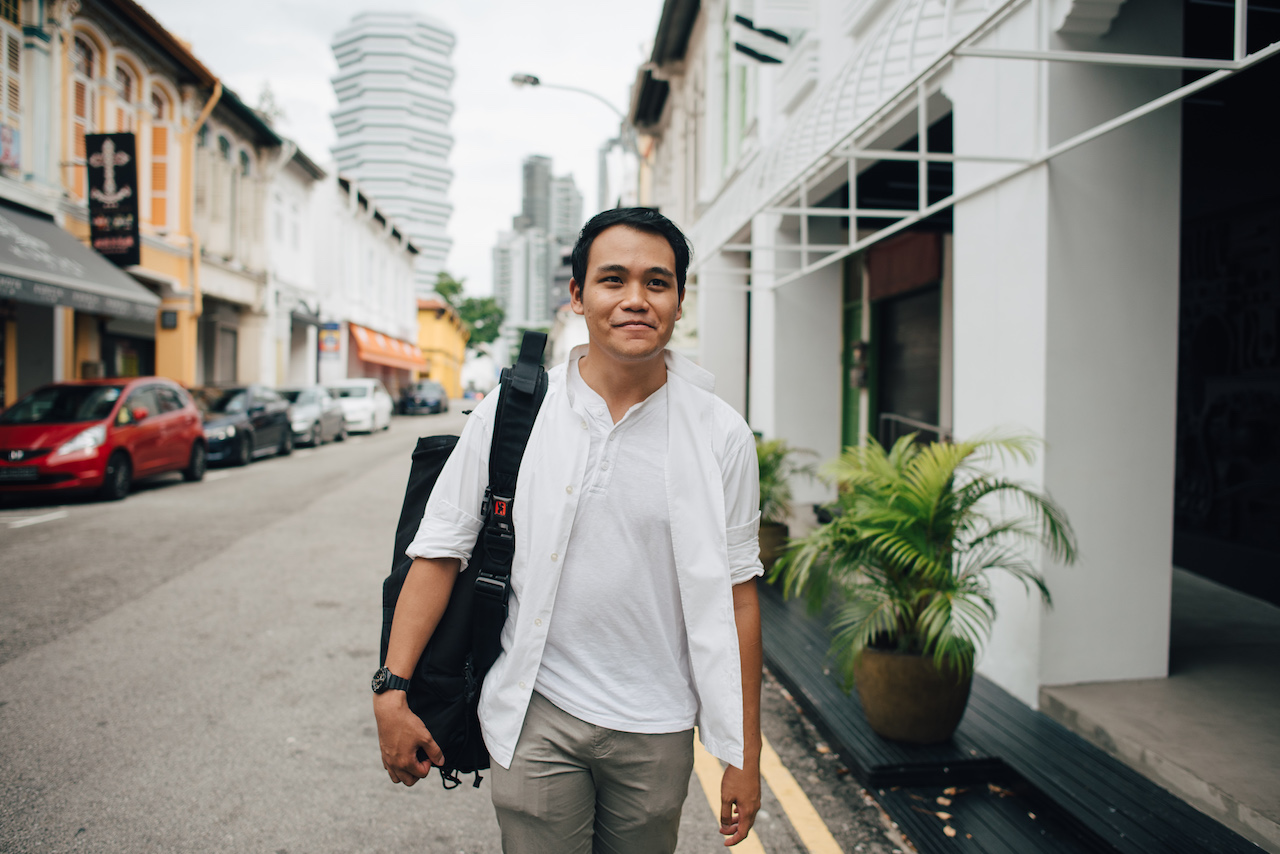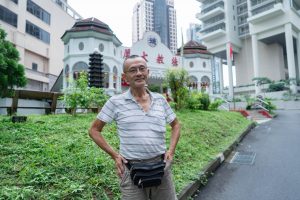For many of us, the teenage angst we experienced growing up was often fuelled by clichéd frustrations: parents telling us what to do, the world telling us who to be, figures of authority telling us how we should behave.
At our lowest points, we might have asked, “What if I could just run away from all this bullshit?”
Some would even have tried, though not many would have actually succeeded. For 26-year-old Zim Aliwal, four nights spent sleeping on the staircase landing outside his HDB flat has turned into six years since he last set foot at home or saw his family.
As for what kept him going, he tells me: “One of the last things my mum said to me was, ‘You will never survive. You will never make it. You will come back to me begging for forgiveness.’ That was the exact opposite of what she should have said.”
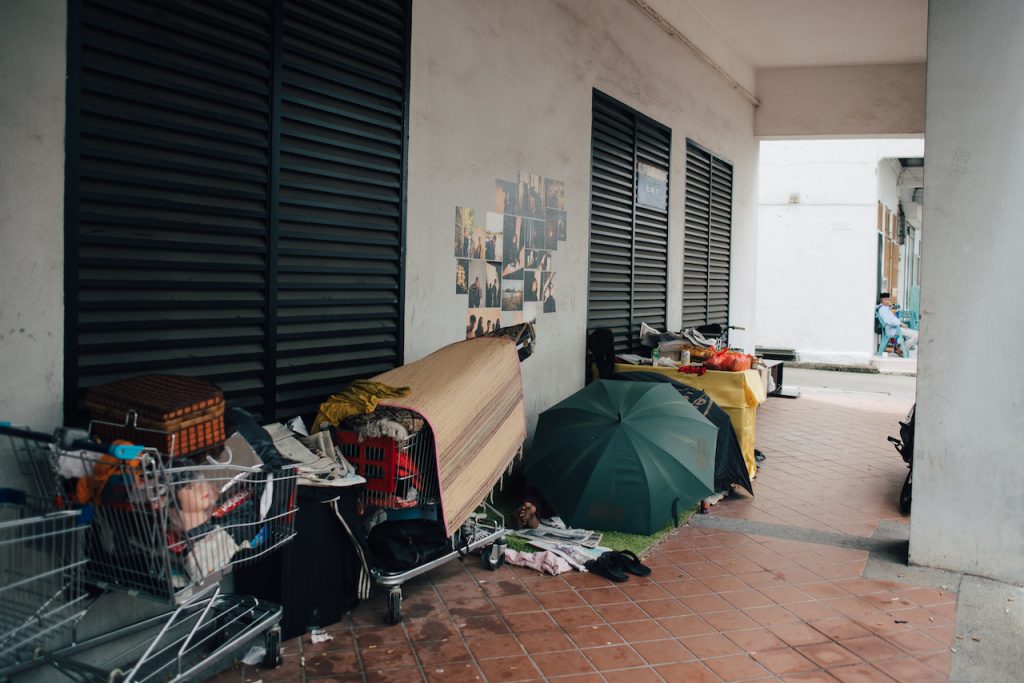
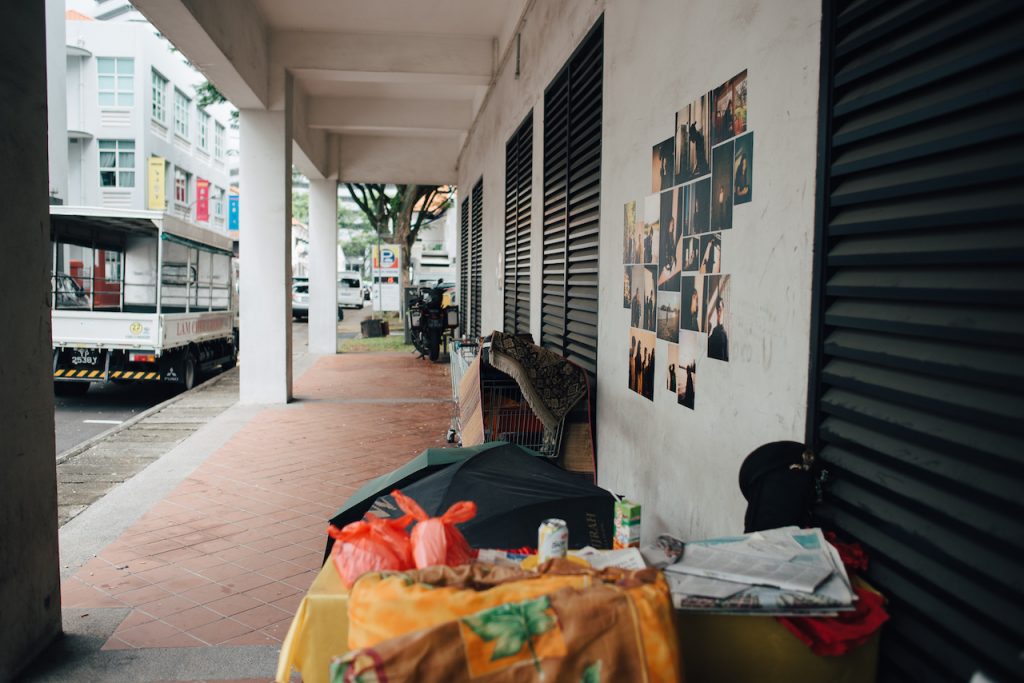
While Zim has renounced Islam, he distances himself from being labelled an ex-Muslim. The term he’s most comfortable with is ‘agnostic’, and while he doesn’t believe in God per se, he does feel a sense of omnipresence that he finds reassuring.
“Terms carry so much weight,” he says, explaining how labels like ‘atheist’ or ‘ex-Muslim’ tend to be seen as inherently aggressive positions.
“The thing I stand against most is that when you take a certain position, you must be against something or for something, and I don’t share that. Once you label yourself and people, that’s when you create that ‘us and them’. That is the core of divisiveness in any community.”
Growing up, this was his experience with religion at home. At the beginning, he shares, the rifts that started between his parents had nothing to do with Islam. Instead, it was simply a case of his parents not getting married on the best of terms. Neither half of his extended family approved of the bride or groom, and so the union was not blessed by either side.
“Naturally, we withdrew, so we were isolated in that sense. I saw my father from being the alpha male of the family starting to stray, starting to have a mid-life crisis, suddenly wanting to break out on his own. He was a sailor, and so he was starting to get tired of the domestic life.”
His mother, on the other hand, turned to religion as a refuge. She went in the opposite direction, trying to reason and reconcile her way through adversity by diving deeper into Islam.
“As much as they seemed to think that religion could explain everything, it couldn’t,” he says. “It couldn’t save their marriage, it couldn’t save them. So why should it be forced on me?”
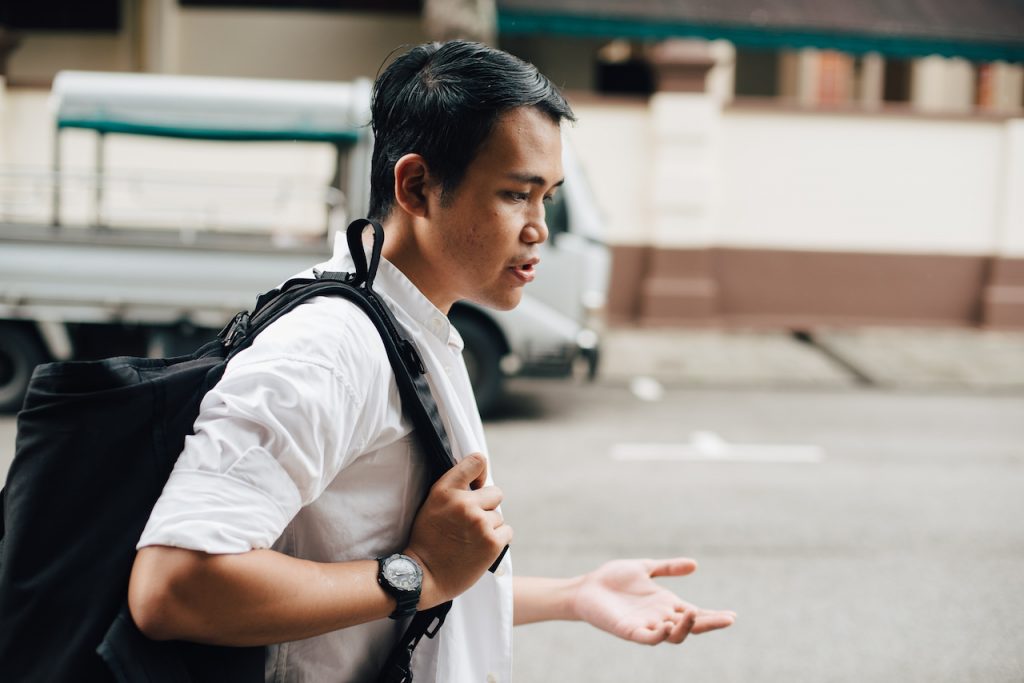
“It’s where I stayed for about six months when I was homeless,” he says.
Today, outside the power station across the road from Aliwal Arts Centre, you can still see pushcarts and a motley accumulation of clothes and random objects, all of which belong to homeless individuals. Zim used to be a part of this community, and tells me, “You don’t realise how hard the world is until you start living outside. So as a homeless person, your most precious possession is actually your mattress.”
He admits that at the time, leaving home for the streets had not been a calculated decision; it was completely impulsive.
“The truth is that I was confronted one night by both my mother and my then-girlfriend. My current girlfriend Nadya, whom I was cheating with at the time, was staying over. ‘You have a girlfriend!?’ Nadya went, and I was assailed on all sides,” he shares with a remorseful chuckle.
“It was straight out of Suria channel, it could not have been more dramatic.”
Nadya is seven years older than Zim, and they first met in a kitchen as colleagues when she was a chef and he worked as a food expeditor. Nadya seemed to have come from a completely different world, sporting coloured hair and having lived in Australia for 10 years. For Zim, the former “goody two shoes Mummy’s boy”, this meant instant infatuation.
This was compounded with what he called a crisis of identity. At 20, he was all set to marry and settle down with the support of his family. Yet it all felt like it rested on him being something he wasn’t: “this law abiding Muslim and the cookie cutter Mummy’s boy”.
When Nadya came along, their relationship began nudging him to interrogate the doubts that had already begun to grow. At first, she represented to him the kind of person that he wanted to emulate—the person who was free, different, and who knew who she was.
It was only during the fallout of the above mentioned confrontation, when he was thrown out of the house and had to spend his nights on a HDB staircase landing, that Zim realised the importance of doing things for himself. Only then did he discover that this, in fact, was exactly what he wanted.
Nadya might have provided the spark, but his discontent had been building for a long time.
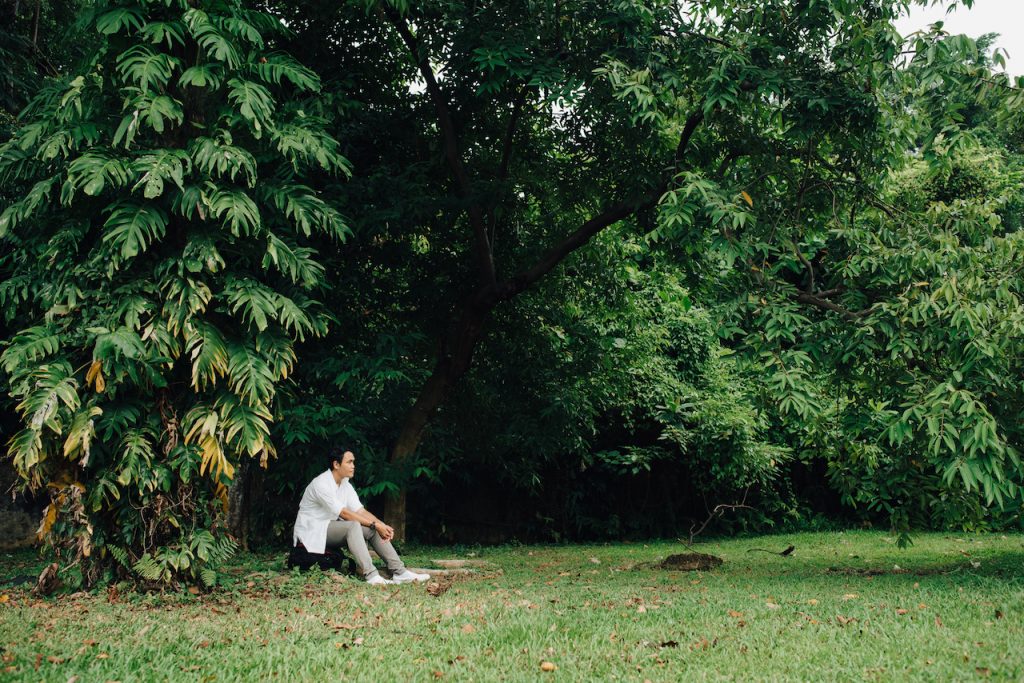
“One of the most frustrating notions in the Malay-Muslim community is that of ‘rezeki’, which simply means ‘God given’. Say I have my lunch and dinner today and that is God given—God has enabled me to have that meal today and I should be appreciative,” he shares.
“But it’s come to a point where it has become a kind of entitlement, where whatever happens, I accept the situation because I’m being tested and I will accept. You want to know why the Malay community is so behind? It’s because this notion has robbed it of ambition and autonomy. They go with the flow, because everything is God given. If I have five kids and I’m struggling to feed them because my finances are a mess, I accept it because that’s my rezeki. But the truth is that I should have had family planning, I should have stopped at two, or even one.”
It’s a toxic notion, Zim says, but he also clarifies that it’s not the religion itself that’s at fault. Emphasising that every religion is beautiful, he explains that it’s the human component that always corrupts it.
In the Malay-Muslim community, for instance, mothers tend to be seen as figures of authority. This notion is rooted in the Quran, according to Zim, which says, “Heaven lies under the feet of your mother.” Yet while he was being told that the mother figure was omniscient, he saw his own mother turning her husband against his mother.
“All these role models kept trying to harp their perfections when they flaunted imperfections all the time,” he remarks, “What’s up with that?”
This convinced him that religion needs to be found on one’s own terms.
“If you are who you are because someone else led you there, then that’s not really who you are,” he says. “In Singapore this is, to me, a pandemic. Everyone is being who everyone else tells them who they should be.”

In the same way that Zim describes how it’s easy to “play the fake Muslim, to just go to Friday mosque and go through the motions,” it’s easy to go through life in Singapore without really questioning anything. As long as one plays by the rules and follows the template of the Singaporean dream, life will never be that hard.
But when all your conveniences and creature comforts have been taken away, when you’re tired, smelly, and hungry, you end up with little choice but to ask yourself: “Who am I? Why do I live?”
Four nights after being thrown out of the house, Zim decided to leave home for good. He packed two bags, hopped into a cab, and left for the hostel 5Footway.Inn in Kampong Glam. Having not yet transitioned into a “homeless budget”, he kept his situation to himself and continued living like nothing had changed. Soon enough, the money ran out.
“If I worked, I ate. If I didn’t work, I didn’t eat. If I didn’t work because I was so tired, I didn’t eat. I just slept. I had to work so I could afford the room, and if I was sick and didn’t work for three days straight then it meant I didn’t have money for the room and I would be sleeping on the streets.”
Between stolen showers at Aliwal Art Centre’s bathroom and befriending hostel staff who would let him crash on the couch when they were on shift, months passed. Out of pride, Zim refused to ask anyone for help.
At this point in his life, he had dropped out of both JC and Polytechnic. At Singapore Poly, he had studied electronic and electrical engineering and hated it. According to his mother, architecture—his preferred field—was un-Islamic. This resulted in deep resentment and a “couldn’t-care-less attitude towards everything”.
On top of this, his family was going through a rough divorce, and so he was also working to support himself.
Having dropped out of Poly just one semester before graduation, he found himself in a kind of limbo, waiting for National Service to roll around. With all his deferments stacked up, he would only enlist about three years later.

It was only then that he was able to pull his life together, to stop trying to survive from one day to the next. A little over two years ago, he finally enlisted in National Service, only to realise that he was going to start making just $400—nowhere near enough to pay rent.
“How many people have heard of an NS man without a home?” Zim recounts. “One of the reasons I performed so well in NS was because of desperation. If I didn’t promote, I was going to starve.”
Fighting to win over the approval of his superiors, he eventually earned the coveted place of Best in Company and got into Sergeant School. From a $400 allowance, it became $700, and then it became $1000. When he became Platoon Sergeant, it jumped to $1200.
“I could finally breathe,” he says. “Now that I’m out of NS I have a job and everything, and I’m starting to mend things. I can finally get my education and my dreams sorted out.”
This period in Zim’s life hammered home the fact that there are no provisions for people like him in Singapore. With the way things like Singapore’s CPF system is set up, renting is out of the question for most regular Singaporeans in their 20s, even if all they want is to learn to live on their own.
What more if you’re attempting to escape difficult domestic circumstances?
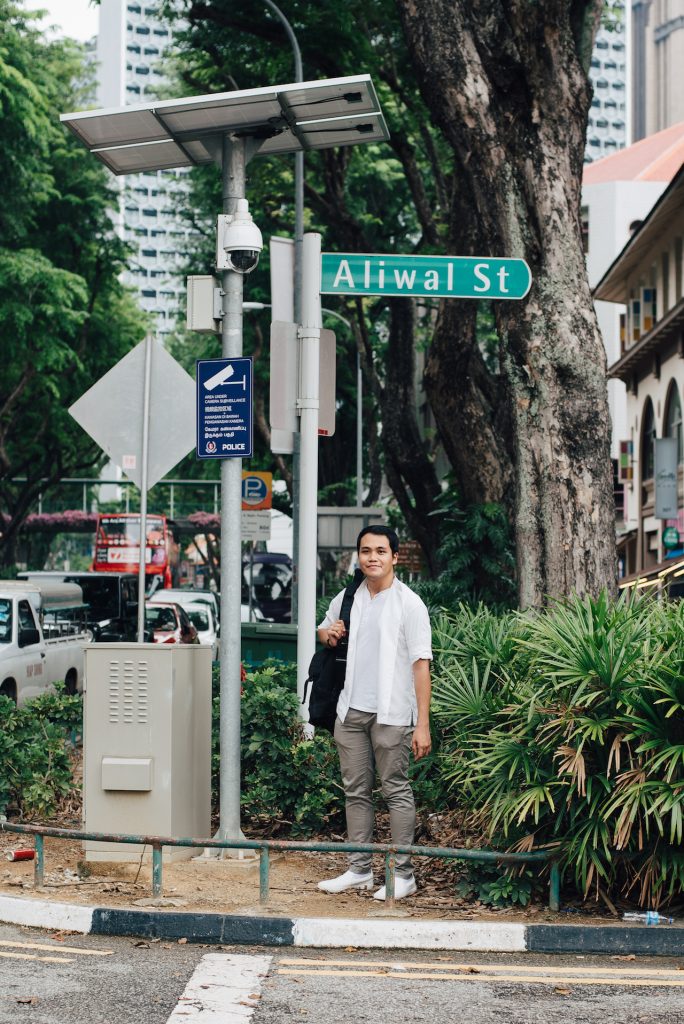
During Zim’s passing out parade, he was the only person who didn’t receive a letter from his parents, as is customary for all “graduating” NS men. Regardless, his superiors chipped in to write him one. With this gesture, it’s easy to take for granted the fact that he has made it out the other side. After all, he is still able to say with conviction that he regrets nothing.
In a way, he is one of the lucky ones. Nadya has stuck by him, and he has found a new definition of family in people like Alexander and the local spoken word community.
At the same time, it’s not as though no price has been paid. He’s still waiting for his siblings to grow older before he reconnects with them; he doesn’t want to sour their relationship with their mother while they’re still dependent on her.
But with Zim telling his story, at least a bigger conversation can begin: not just about what it means to decide to leave one’s religion, but to decide that we are more than who we’re told we’re allowed to be.

